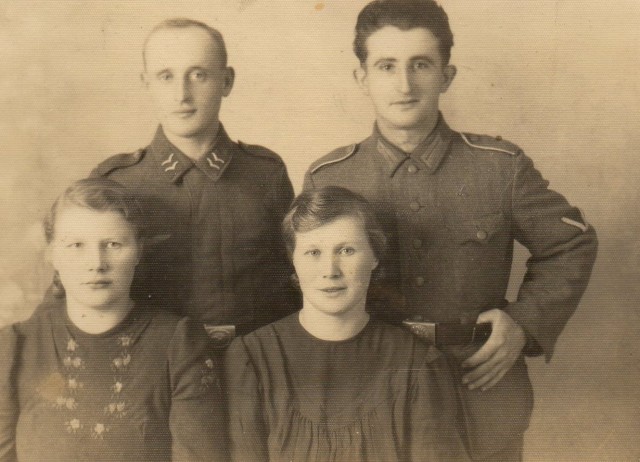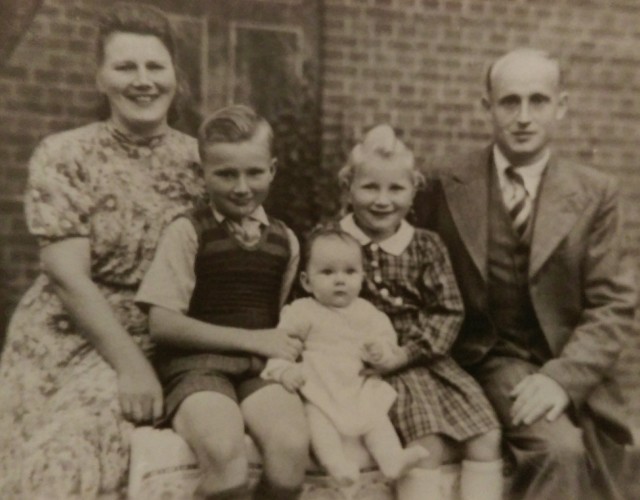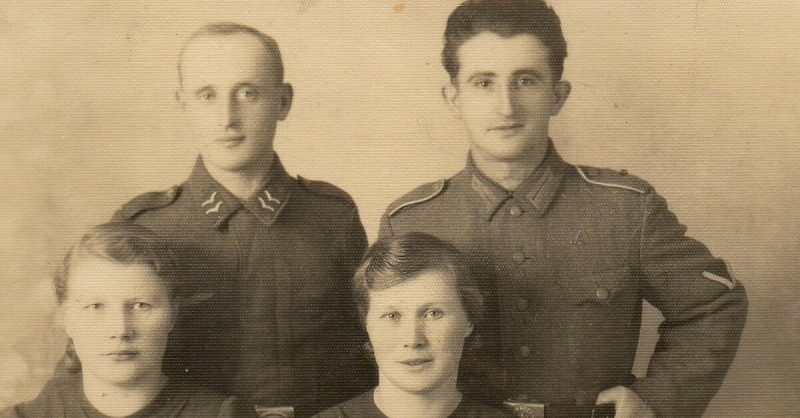Under the Treaty of Versailles, several German provinces became property of Poland after World War I, leaving many families to cling to their German identity while living in a foreign land. Though they tried to carry on with their lives, the outbreak of the Second World War brought many challenging events that would result in many families seeking a better life elsewhere.
Born in 1950 inside a small barn in postwar Germany, Jefferson City, Mo., resident Inge Ehrlich Gauck entered the world to become part of a stirring tale that included a father whose immigration to the United States was set in motion by the German invasion of Poland in 1939.
Gauck’s father, Hugo Ehrlich, was born in 1916 in a small Polish village near the German border. As he entered manhood, he was not plagued with concerns related to a deadly and protracted European war when he chose to marry his 17-year-old sweetheart, Hedwig Beier, in 1940.
“When my parents married, their gift from the (German-controlled) government was a copy of ‘Mein Kampf’ by Adolph Hitler,” said Gauck. “Instead of reading the book,” she added, “they buried it in their yard because they thought Hitler was a radical and wouldn’t be around for long; they didn’t believe the war would last and that they could have children and go on with their lives.”

As Gauck shared, her father possessed only a third grade education and worked on his family’s farm, never losing the dream of someday owning his own property. However, in 1942, Hugo experienced firsthand the consequences of Hitler’s expansionist vision when the Polish territories seized during the war were required to provide soldiers for the German cause.
In the book “The Exile Mission: The Polish Political Diaspora and Polish Americans, 1939-1956,” the author describes a “separate category of Polish citizens who had been forcibly conscripted into German military units,” most of whom originated “from the areas that had been annexed directly to the Reich and were considered ‘ethnically German.’”
Ehrlich was not alone in his conscripted service since, as noted on the Axis History website, as many as 500,000 Polish citizens served in the Werhmacht (the unified armed forces of Germany) during the Second World War, including Ehrlich’s brother-in-law, Adam Scheffler.
“Adam (Scheffler) was married to Hedwig’s sister (Ehrlich’s wife),” explained Gauck. “He was killed during the war, leaving behind his wife and two young children.”
She continued, “My father’s job in the military was to operate a search light. After the bombings of different areas, he was also one of the first people to go into the area to locate the wounded and dead.”
One day, however, Ehrlich’s circumstances would be forever altered when he was captured by American forces.
“He was held in a prison camp,” said Gauck, “but I’m not exactly sure where it was located—if it was in Europe or elsewhere. He always said that because of the humane treatement he received as a prisoner of war at the hands of the Americans, he wanted to some day bring his family to the United States.”
Ehrlich was eventually released from the prisoner of war camp and a certificate he received notes his discharge from the German military on January 30, 1946, at which time he returned to Poland and was reunited with his wife and two children—Erika (daughter) and Gerhard (son).
The next few years were quite turbulent for the growing family as they joined thousands of other refugees who had lost their property as a result of the war. The Ehrlich family was later relocated to a small German village and had to live in part of a barn with other displaced families, where Gauck was born in 1950 and thus became the family’s third and final child.

However dire their circumstances appeared, the Ehrlich’s found solace through Public Law 774 and 555, which granted them an opportunity to enter the United States as “displaced persons” under the sponsorship of Lutheran Service to Refugees (now known as Lutheran Immigration and Refugee Service).
The family received its first introduction to the United States following their immigration in 1952 through the sponsorship of St. John’s Lutheran Church in May City, Iowa; the congregation helped Ehrlich find a job and provided the family a small apartment above a local grocery store.
“We didn’t know English very well, so even going to the store and trying to buy something was a challenge,” Gauck said. “I remember my father really liked eggs and he had to make a sound like a chicken clucking for them to understand that he wanted eggs,” she smiled.
The former soldier eventually did learn English and, on November 19,1965, earned his citizenship. In later years, he moved his family to the state of California with hopes of purchasing farmland, but instead, became successful by working as a carpenter by day and, in the evenings, moved houses for the freeways being built in Los Angeles.
Though her father passed away in 1973, Gauck is gratified knowing the struggles he overcame to give his family a better life in a country that provided their first glimmer of hope during the tumultuous period following World War II.
“My father only had the opportunity to complete the third grade,” said Gauck, “but all of his surviving grandchildren have gone on to become college graduates.” Grinning, she exclaimed, “What a wonderful country we live in!”
She added, “He was always very proud that we lived in the United States and of all the wonderful opportunities that are available here. He proved that you can be successful by working hard … and that is the American dream come true.”
Jeremy P. Ämick is author of the novel “The Lucky Ones,” which chronicles the WWII service of Norbert Gerling, who served as gunner on an M-18 Hellcat with Company C, 609th Tank Destroyer Bn.
